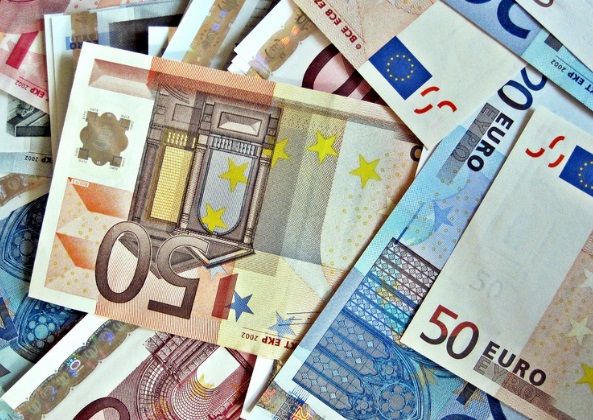The company SIA “EcoLead” has attracted “BlueOrange Bank” financing in the amount of 4.36 million euros, which will be used for the establishment of a spent lead battery recycling plant in Kalnciems, a representative of “EcoLead” told LETA
By attracting funds from the European Regional Development Fund, the total amount of investments exceeds eight million euros. Most of the funding received will be used for the purchase and installation of equipment for recycling.
An industrial building in the Kalnciems industrial zone, Jelgavas Street 21, will be adapted to the needs of the factory. Reconstruction, arrangement of the territory and creation of the necessary infrastructure have already been carried out in the territory, as well as the first equipment has been installed. In the coming months, the plant plans to receive and install a metallurgical furnace and the equipment necessary for the implementation of various processing processes. The commissioning of the plant is planned for the third quarter of 2022, but at the beginning of 2023 it is planned to start recycling the batteries.
Representatives of EcoLead informed that in the next three years it is planned to increase the processing capacity of the plant to 15,000 tons of batteries per year, obtaining 8,700 tons of lead and lead alloy ingots. The metals and plastics produced in the recycling process will be exported for further use to Italy, the Czech Republic and other countries, again for the production of new batteries, thus ensuring an environmentally friendly full production cycle.
Kalnciems battery recycling plant will be the only recycling plant of this type in Latvia. Similar processing plants operate throughout Europe, including 22 years in Latvia’s neighboring country, Estonia. The batteries that have reached the end of their time have been exported from Latvia for recycling to other nearby countries, such as Estonia, Lithuania and Poland. Lead-acid batteries are used in a wide variety of mechanisms for storing electricity, including cars, motorcycles, telecommunication towers and trains.
“Approximately 10,000 tons of lead batteries are collected for recycling in Latvia during the year, and this amount increases by an average of 7% annually. With the start of the new plant, Latvia will be able to recycle the waste, plans to recycle waste as close as possible to its place of origin, “said Deniss Ulyanov, a member of the board of EcoLead.
Kalnciems battery recycling plant will provide more than 50 new jobs. Most of them will be specialists, and it is planned to attract and train mostly local labor for this work. The factory management team has now been recruited and the selection of other employees is planned to start in the coming months.
In 2020, the company “EcoLead” received a category A polluting activity permit from the State Environmental Service, which confirms the compliance of the future plant with the highest local and international safety and environmental protection standards. The plant will be equipped with state-of-the-art water and air treatment facilities and will be regularly monitored to ensure that the plant does not adversely affect the environment and the surrounding ecosystem.
The recycling plant permit received by EcoLead currently only covers the recycling of lead-acid batteries, but in the future the company is considering expanding its operations to develop new types of recycling.
“The main priority of the recycling plant will be the recycling of lead-acid batteries collected in Latvia, but we will be ready to adapt to the needs of the Latvian market. “The technological capabilities of the plant also for the processing of this type of batteries,” said Ulyanov.
Ecolead owners have more than 20 years of experience in the collection, transportation and recycling of scrap metal and hazardous waste. Deniss Ulyanov owns 55.58% of the shares in EcoLead, while another 44.42% is owned by the Estonian company Unimet Estonia.
“EcoLead” worked with a loss of 163,589 euros in 2020, according to “Firmas.lv” information. The company was founded in 2007, its share capital is 1,294,400 euros.
Due to the provisions made by BlueOrange Bank, it has operated with a loss of 2.411 million euros in the first half of this year, as opposed to the profit of the same period last year, according to the information published by the bank. The bank group’s loss in the first half of this year was 2.6 million euros, as opposed to the profit in the first half of 2020.
At the end of 2020, BlueOrange Bank was the sixth largest bank in Latvia in terms of assets. The sole shareholder of the bank is the Latvian JSC “BBG”, the real beneficiaries of which, according to “Firmas.lv”, are Aleksandrs Peškovs, Sergejs Peškovs, Andrejs Kočetkovs and Oļegs Čepuļskis.
–
It is strictly forbidden to use, copy or reproduce the materials published on iAuto.lv on other Internet portals, mass media or otherwise handle the materials published on iAuto.lv without the written permission of EON SIA.
.


